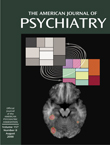Fluoxetine for Bulimia Nervosa Following Poor Response to Psychotherapy
Abstract
OBJECTIVE: This was an investigation of whether treatment with fluoxetine is useful for individuals with bulimia nervosa who do not respond to psychotherapy or relapse afterward. METHOD: Twenty-two patients with bulimia nervosa who had not responded to, or had relapsed following, a course of cognitive behavior therapy or interpersonal psychotherapy were randomly assigned to receive placebo (N=9) or fluoxetine (60 mg/day, N=13) for 8 weeks. RESULTS: The median frequency of binge eating in the previous 28 days declined from 22 to four episodes in the fluoxetine group but increased from 15 to 18 episodes in the placebo group. Similarly, purging frequency in the previous 28 days declined from 30 to six episodes in the fluoxetine group but increased from 15 to 38 episodes in the placebo group. CONCLUSIONS: Fluoxetine may be a useful intervention for patients with bulimia nervosa who have not responded adequately to psychological treatment.



